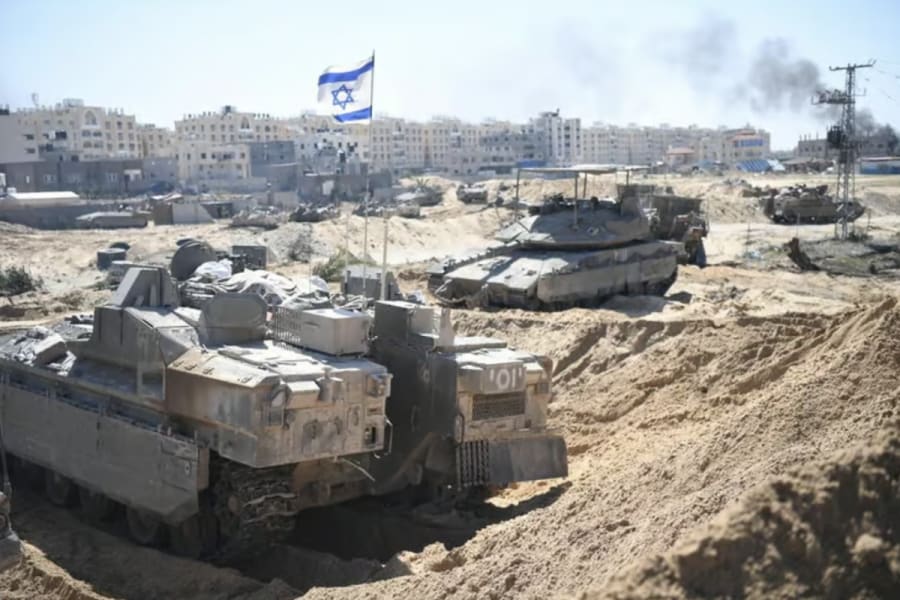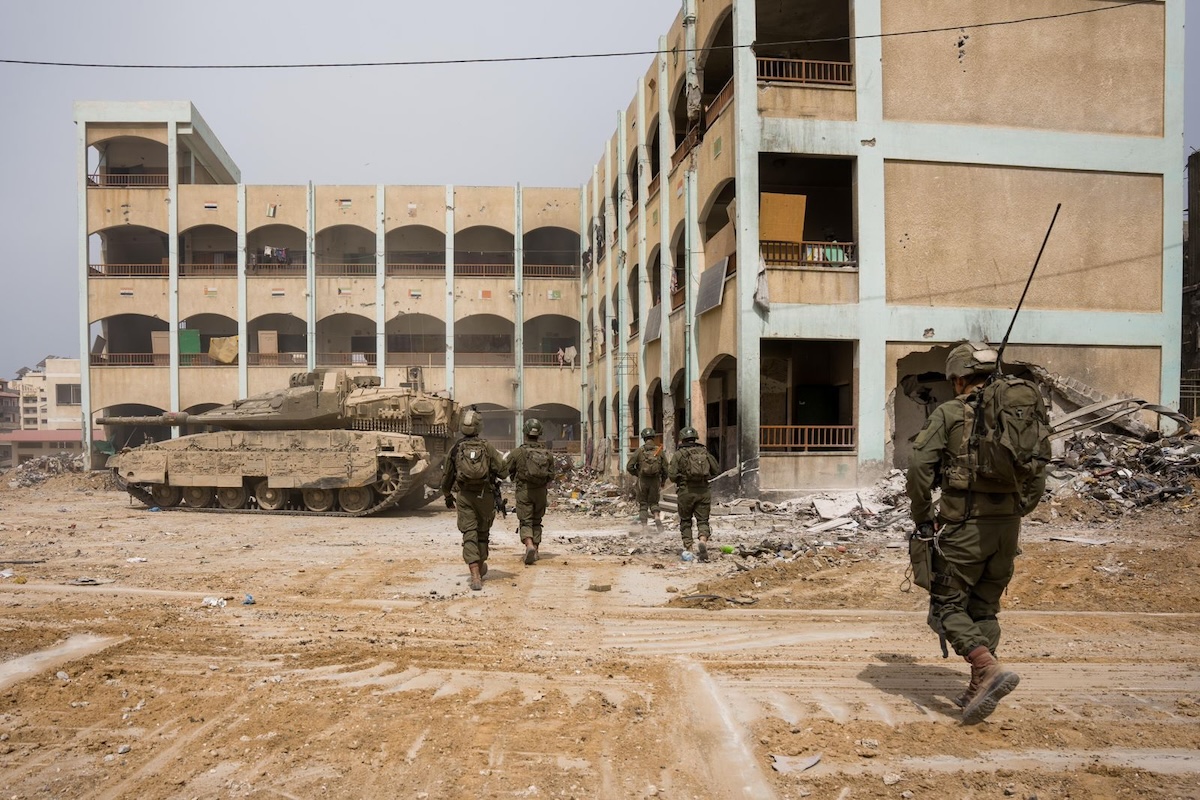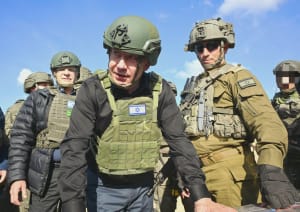IDF withdraws most forces from Khan Younis ahead of planned Rafah operation
IDF will shift to targeted raids based on recent intelligence gains

Six months after the horrific Oct. 7 Hamas attacks on Israel’s southern Gaza border communities, the IDF has reportedly withdrawn the majority of its forces from the Khan Younis neighborhood in southern Gaza.
According to Hebrew news reports, the IDF considers its main operations in Khan Younis to be completed and has withdrawn most brigades from the neighborhood.
Following the neutralization of the primary Hamas brigade in Khan Younis and the gathering of extensive intelligence through recent operations, including at the Al Shifa Hospital complex, the IDF plans to initiate precision raids with the newly acquired information.
These small, limited raids will reportedly become the primary operations strategy for the entire Gaza Strip except Rafah, which the IDF is planning a full operation.
Israel has steadily maintained that without an IDF incursion into Rafah to defeat the remaining four Hamas brigades, it will not be able to complete its war objectives. The operations are aimed at capturing or assassinating Hamas leaders like Yahyah Sinwar and Mohammed Deif, as well as rescuing any hostages being held captive there.
The IDF does not consider Hamas completely dismantled, despite destroying most of its brigades, due to continued attacks by small terror cells. However, the IDF believes that the military framework of Hamas has been largely dismantled, with the group primarily acting as a guerrilla organization.
According to reports, only one Israeli military brigade remains in Khan Younis, primarily focused on preventing evacuees in the area of Rafah from returning to northern Gaza, where Hamas has recently attempted to reassert itself.
The remaining brigade, the Nahal Brigade, has been tasked with securing the so-called Netzarim Corridor, which crosses Gaza from the area of Be’eri to the Mediterranean coast.

Israel told the U.S. its intentions to conduct a significant military operation in Rafah, promising to first relocate civilians to safe zones elsewhere in the Gaza Strip. Israel recently outlined a plan to establish temporary shelter areas ("tent cities") for evacuees, which the Biden administration deemed inadequate.
The U.S. and the international community have increasingly put pressure on Israel to not enter Rafah and to agree to a permanent ceasefire. So far, Israeli Prime Minister Benjamin Netanyahu and the war cabinet have refused to commit to either of those, insisting on fulfilling Israel's military objectives first.
Speaking at the start of the Cabinet meeting Sunday, Prime Minister Benjamin Netanyahu said "we are determined to decide the war with total victory. To return all our abductees, to complete the elimination of Hamas throughout the Gaza Strip – including Rafah – and to ensure that Gaza no longer poses a threat to Israel."
Regarding the departure of the Israeli delegation to Cairo for renewed talks about a hostage deal, Netanyahu said, "Hamas hopes that pressure from outside and from within will cause Israel to capitulate to these extreme demands. That won't happen. Israel is ready for a deal, Israel is not ready for surrender. I made it clear to the international community: There will be no ceasefire without the return of hostages."

The All Israel News Staff is a team of journalists in Israel.














